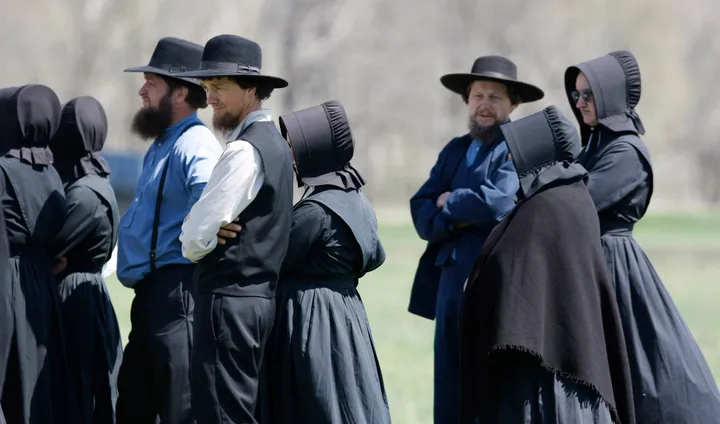Why Amish Avoid Politics and Military Service
The Amish are widely known for their simple lifestyle, strong community ties, and deep religious devotion. Part of this devotion includes a conscious decision to avoid politics and military service. These choices reflect their values of humility, nonviolence, and separation from the worldly affairs of modern society.
Commitment to Nonviolence
Central to Amish belief is the principle of nonviolence. They follow Jesus’ teachings to turn the other cheek and live peacefully with others. This commitment makes participation in military service incompatible with their faith.
For the Amish, serving in the military would involve actions that could harm others, which goes against their spiritual convictions. They believe that true devotion to God requires avoiding violence and fostering harmony in all interactions.
Separation from the World
The Amish practice Gelassenheit, which emphasizes humility, submission, and separation from worldly influences. Politics often involves ambition, debate, and competition, which they see as distractions from spiritual life.
Avoiding political involvement helps the Amish maintain focus on faith, family, and community. By staying separate, they minimize exposure to conflict, pride, and societal pressures that could undermine their values.
Prioritizing Community over Individual Gain
Amish society prioritizes the collective well-being of the community over individual power or recognition. Political participation often encourages self-interest and personal gain, which contrasts with Amish teachings of humility and service.
By abstaining from politics, the Amish ensure that community loyalty remains strong. Decisions and actions are guided by shared values, not external authority or personal ambition.
Religious Guidance and Decision-Making
The Amish rely on church leaders—bishops, ministers, and deacons—for guidance in matters of ethics and daily living. They follow the Ordnung, a set of unwritten church rules derived from Scripture.
These leaders provide moral direction, so the community does not need to engage in political debates or government policy decisions. Faith and adherence to the Ordnung take precedence over civic participation.
Maintaining Humility
Politics and military service often promote pride, status, and public recognition. The Amish avoid these pursuits because they value humility above all.
Living humbly means avoiding actions that elevate oneself over others or place oneself in positions of power. By staying out of politics and the military, the Amish protect their spiritual focus and maintain equality within the community.
Conscientious Objection and Historical Context
Historically, the Amish have been conscientious objectors during wars. Their refusal to serve in armed conflict is recognized legally in many countries, including the United States.
This stance is not political activism—it is a religious principle. The Amish are willing to pay fines or perform alternative service rather than compromise their faith. Their commitment demonstrates that obedience to God takes precedence over loyalty to the state.
Education and Community Service Instead
Instead of political engagement or military service, the Amish dedicate themselves to education, work, and community service. Farming, crafts, childcare, and charity are ways they contribute meaningfully while remaining true to their beliefs.
These activities strengthen community ties, provide for families, and honor God. The Amish see service to others as a higher calling than participation in worldly institutions.

Living Peacefully in a Modern World
Avoiding politics and military service allows the Amish to live peacefully despite the complexities of the modern world. Their focus remains on faith, family, and community, rather than the conflicts and competition that dominate broader society.
This separation also reduces stress and moral dilemmas. Members can live consistently with their beliefs without compromising values or being drawn into disputes that conflict with their nonviolent principles.
Conclusion
The Amish avoid politics and military service to maintain faith, humility, and peace. Their commitment to nonviolence, separation from the world, and community-focused living shapes these choices.
By abstaining from political involvement and armed conflict, the Amish demonstrate that devotion to God and moral integrity take precedence over worldly influence. Their lifestyle offers a compelling example of living in harmony with spiritual convictions while navigating modern society.



